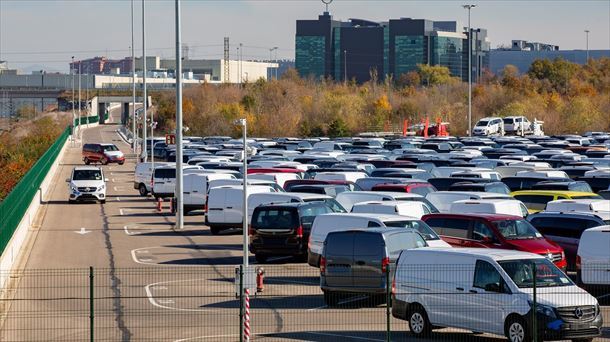Will sanctions against Russia help? Yes, they are already hitting Vladimir Putin and his henchmen hard, and their effects on the Russian economy will increase over time
Since Russia has deliberately violated international law by invading Ukraine, the EU has adopted six sanctions packages against Moscow. Our measures now target nearly 1,200 people and 98 entities, as well as a significant number of sectors of the economy. These sanctions have been established in consultation with the members of the G7. Their effectiveness is enhanced by the fact that more than 40 countries (including traditionally neutral countries) have adopted them or have taken similar measures.
By the end of 2022, we will have reduced our Russian oil imports by 90% and we are rapidly reducing our gas imports. These decisions gradually free us from a dependency that has long hindered our political choices in the face of Vladimir Putin’s aggressiveness. He probably thought that Europe would not dare to impose sanctions because of its energy dependence. This is not the least of the many errors of judgment committed by the Russian regime in this conflict. Of course, this rapid detoxification of Russian energy also causes serious problems for many EU countries and for various industries. But this is the price we have to pay for defending our democracies and international law, and we are taking the necessary measures to face these problems in solidarity.
Some will say: but do these sanctions really affect the Russian economy? The answer is yes. Because while Russia exports a lot of raw materials, it is also forced to import a lot of high value added products that it doesn’t produce. In terms of advanced technologies, it is 45% dependent on Europe and 21% on the United States, compared to just 11% on China.
Militarily, crucial in the context of the war in Ukraine, the sanctions limit Russia’s ability to produce precision missiles such as the Iskander or the KH 101. Almost all foreign car manufacturers have also decided to withdraw from Russia and the few cars produced by Russian manufacturers are sold without airbags or automatic transmissions.
The oil industry is suffering not only from the departure of foreign operators, but also from the difficulty of accessing advanced technologies such as horizontal drilling. Russian industry’s ability to bring new resources online is likely to be limited. Finally, in order to maintain air traffic, Russia will have to take most of its planes out of circulation to recover the necessary spare parts so that the others can fly. Added to this are the loss of access to financial markets, the disconnection of major global research networks and the massive brain drain.
As for the alternative that China would offer the Russian economy, it is in reality limited, especially for high-tech products. So far, the Beijing government, which relies heavily on its exports to developed countries, has not allowed Russia to evade Western sanctions. Chinese exports to Russia have declined in comparable proportions to those of western countries.
Will these significant and growing shocks prompt Vladimir Putin to adjust his strategic calculations? Probably not in the near future. Their actions are not primarily guided by economic logic. However, by forcing him to choose between butter and cannons, the sanctions close him in an ever-tightening circle.
The consequences of these sanctions continue to affect third countries, especially African countries, which depend on Russian and Ukrainian wheat and fertilizers. The responsibilities in the food crisis are clear: our sanctions are not aimed at the export of Russian wheat or fertilizer, while Ukraine cannot export its wheat because of the blockade of the Black Sea and the destruction caused by Russian aggression. If potential issues arise in connection with our sanctions, we are willing to put in place the appropriate mechanisms to respond. I have informed my African colleagues of this and asked them not to be misled by the lies of the Russian authorities about our sanctions.
The real answer to the difficulties of the world energy and food markets is the end of the war. This cannot be achieved by accepting the Russian dictate, but by withdrawing the Russian army from Ukraine. Respect for the territorial integrity of states and the prohibition of the use of force are neither Western nor European principles. They form the basis of all international law. Russia likes to trample them. Accepting such a violation would open the door to the law of the jungle on a global scale.
Contrary to what we thought with some naivety a few years ago, economic interdependence does not automatically mean a pacification of international relations. That is why the transition to a Europe as a power is absolutely necessary, which I have been demanding since the beginning of my mandate. In light of the invasion of Ukraine, we have begun to move from intent to action, showing that Europe can respond if provoked. Since we don’t want to go to war with Russia, economic sanctions are now at the heart of this response. They are already starting to take effect and will do so even more in the coming months.
Source: La Verdad
I am an experienced and passionate journalist with a strong track record in news website reporting. I specialize in technology coverage, breaking stories on the latest developments and trends from around the world. Working for Today Times Live has given me the opportunity to write thought-provoking pieces that have caught the attention of many readers.



